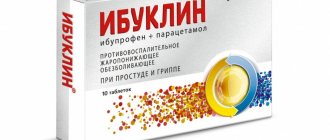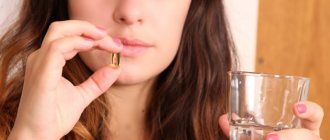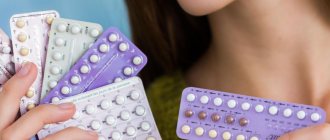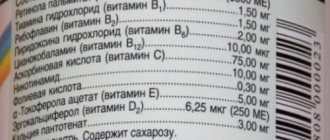What is an IUD (intrauterine device)?
The IUD is one of the effective means of contraception, which is often used by women who have given birth, most often having a permanent partner and who are currently not ready for motherhood again.
Like any other type of contraception, spirals vary in their composition, type, period of use and other parameters.
Classification
There are 2 groups of spirals:
- hormonal;
- non-hormonal.
Both perform the same task - protection from unwanted pregnancy. But some of them have additional properties. For example, hormonal IUDs are often used in gynecological practice as a way to treat certain diseases, and non-hormonal IUDs with the addition of silver or gold have a bactericidal effect and protect the female reproductive system from unwanted infections.
There are 3 generations of spirals:
1st generation
- An IUD without any metal or hormone, consisting only of medical grade plastic.
- Their contraceptive effect is achieved only through the mechanical impossibility of attaching the fertilized egg to the endometrium.
- Often cause complications (infectious diseases, ectopic pregnancy and prolapse of the IUD - expulsion).
1st generation IUDs are no longer used because more reliable and effective IUDs exist.
2nd generation
- IUDs containing metal. That is, these are spirals that also consist of medical plastic, but have a contraceptive effect due to additional components - copper, silver, gold.
- Metals act not only on the female body, but also on the male factor - sperm, and thereby reduce the risk of unplanned pregnancy.
3rd generation
- Hormonal IUDs, which at this stage are used as therapeutic and contraceptive agents.
Intrauterine devices have different shapes:
- T-shaped;
- round or semicircular;
- in the form of an umbrella;
- horseshoe-shaped (semi-oval).
Each spiral has its own advantages and disadvantages and is selected individually depending on the characteristics of a particular woman’s body.
All IUDs have the same operating principle – protection against unwanted pregnancy.
So, how does the IUD help prevent conception?
All spirals consist of medical plastic, which rarely causes an allergic reaction in women. But such cases do occur. For this reason, you need to carefully monitor your sensations and monitor the body’s reaction after installing the spiral.
In addition to medical plastic, modern spirals include:
- metals (silver, copper, gold);
- hormones.
Hormonal IUD
This type of IUD releases a certain amount of a hormone that affects not only the female body, but also reduces the activity of sperm. The spiral does not affect male potency or men's health! Only on sperm that have already entered the woman’s reproductive tract. The only noticeable disadvantage that intrauterine devices can bring to a man is the feeling of the antennae of the device during sexual intercourse. This issue can be easily resolved: you need to come to see a doctor, and the gynecologist will simply shorten the interfering tendrils of the spiral.
The hormone in the spiral affects the maturation and release of eggs by a woman’s ovaries and does not have a destructive effect on the hormonal balance as a whole.
The very presence of the IUD in the uterus prevents the attachment of the fertilized egg and, accordingly, pregnancy does not occur. This is a mechanical factor in preventing pregnancy. The coil also causes a local reaction, which has a detrimental effect on sperm, inhibiting and destroying them.
Hormonal IUDs affect many female diseases (endometriosis, uterine fibroids, etc.) and are recommended for use by gynecologists to treat the latter.
Non-hormonal IUD
As for IUDs containing metals, such designs, in addition to the mechanical factor of pregnancy protection inherent in all spirals, have a detrimental effect on the male factor. For example:
- Copper, oxidizing the environment, inhibits the movement of sperm that enter the uterine cavity and damages them.
- Silver and gold increase the shelf life of spirals and have a beneficial effect on local immunity, protecting a woman from inflammatory diseases of the pelvic organs.
All types of spirals have a stimulating effect on the fallopian tubes and enhance their peristalsis. While the fertilized egg is rapidly moving into the uterine cavity, the endometrium does not have time to prepare to accept a new life, and as a result, the embryo ends up in an unfavorable environment that is not suitable for further development.
To summarize, we can identify the links of fertilization that are influenced by any spiral:
- On the male factor (inhibitory and spermicidal effect).
- For the maturation and release of the egg from the ovaries.
- For the delivery of the egg and fertilized egg through the fallopian tubes.
- Attaching the fertilized egg to the endometrium.
- A local reaction that causes the release of enzymes that are harmful to sperm.
What side effects may there be?
First of all, in women, the menstrual cycle is disrupted - it becomes irregular, it can become longer or shorter, the discharge can be scanty or more abundant. Side effects of the intrauterine device include:
- irregular discharge between menstruation – most often a concern in the first six months after installation of the IUD;
- attacks of headache in the morning and acne on the body, as well as chest pain;
- the formation of benign cysts on the ovaries, which will resolve over time;
- attacks of nausea and vomiting, pain in the lower abdomen, and lack of menstruation;
- hormonal imbalance, although such a reaction from the IUD is rare;
Who can get an intrauterine device?
The IUD is recommended for use in the following situations:
- The desire of the woman herself at this stage of life not to become a mother (provided that there is already a history of childbirth).
- Frequent pregnancies with other types of contraception (if they are used incorrectly or are not taken carefully).
- Protection against unwanted pregnancy during lactation (breastfeeding).
- In order to save money. IUDs are installed for several years, which allows a woman not to worry about other types of contraception (oral contraceptives, condoms).
Important! IUDs do not protect against STIs (sexually transmitted infections)! It is recommended to use a contraceptive if you have a regular sexual partner (low risk of transmitting sexually transmitted diseases). It should also be mentioned that IUDs are used in women who have given birth and are not recommended for contraception in young nulliparous girls.
Method of setting up a spiral
The IUD is installed both during menstruation and immediately in the first days after it, since at this time it is more likely to exclude the presence of pregnancy. In addition, the cervix is slightly open during this period, which makes it easier for the device to enter the uterine cavity and cause minimal discomfort to the woman.
Before installing the spiral, the doctor conducts tests for the presence of inflammatory diseases and, if necessary, prescribes anti-inflammatory therapy. This reduces the risk of complications and the IUD falling out in the future. The process itself takes place only in a gynecologist’s office, under aseptic conditions.
You must carefully read the instructions for the specific coil and study the expiration dates.
If a woman decides to have an IUD after childbirth, she should wait some time (about 6 weeks) for the uterus to return to its previous state. The fact is that during pregnancy the uterus overstretches, and after childbirth it gradually returns to its previous size. This process is called uterine involution. In order to avoid complications after installing the IUD, gynecologists recommend waiting until the end of involution.
It is not recommended to place an intrauterine device immediately after an abortion. The patient should be monitored for complications and various inflammatory diseases that could provoke an abortion. As soon as the obstetrician-gynecologist is convinced that the woman is completely healthy, the IUD can be placed in the uterine cavity.
The instructions for some IUDs contain instructions about inserting a contraceptive immediately after an abortion. This issue should be resolved individually with an experienced doctor and follow his advice in this matter.
Contraindications
The use of intrauterine devices is suitable for women who have given birth and are completely healthy. The method has many relative and absolute contraindications:
- Allergy to coil materials (most often copper).
- Inflammatory gynecological diseases and sexually transmitted infections.
- Injuries after childbirth, instrumental abortion, diagnostic procedures.
- Diseases of the cervix.
- Myoma.
- Menstrual irregularities.
- Diseases of the circulatory system.
Review of intrauterine devices: the most popular means
There are a huge number of intrauterine contraceptive devices on the market, which have different shapes, compositions, terms of use and, of course, price ranges. They all have their advantages and disadvantages.
So, let's look at the most commonly used and popular spirals:
Spiral Multiload (Multiload CU-375)
This is a copper wire spiral that has a T-shape. It is not hormonal. The metal affects spermatozoa, causing their death and the impossibility of further fertilization.
The shelf life of the spiral is 4 years. After this period, the spiral must not be used under any circumstances!
Rod length – 35 mm. This is a standard length; the spiral has no other variations in size. It is suitable for women whose uterine cavity, after measuring the size of the uterus with a probe, is between 6 and 9 cm long.
Among the features of the spiral, it should be noted that its use is prohibited in the following situations:
- if you have an existing allergy to copper;
- in the first 3 months after an abortion;
- during the period of breastfeeding.
If a woman has been taking immunosuppressants for a long time to treat another pathology, the IUD is not suitable, and another method of contraception should be selected.
It should be noted that the presence of copper in the contraceptive will not affect the total amount of copper in the body.
The price range is around 2.5-3 thousand rubles.
Spiral Copper (Copper TCu 380A)
Just like the previous spiral, it contains copper. Spiral dimensions – vertical – 36 mm, horizontal – 32 mm. A feature of this spiral is a greater release of copper into the uterine cavity, which causes a stronger local reaction.
Duration of use – 5-6 years.
It is not recommended to insert a Copper coil immediately after an abortion.
Another tip: After installation, you should lie on the couch in the doctor's office. In rare cases, after insertion of the IUD, a slowing of the pulse and clouding of consciousness are observed.
All other properties are the same as those of the Multiload spiral.
The price fluctuates around 2 thousand rubles
Spiral Goldlily
It contains both copper and one of the noble metals - gold. Gold covers the copper surface, protecting it from early oxidation and corrosion. By creating a potential difference, additional protection against unwanted pregnancy is created. Gold has a powerful bactericidal effect and prevents the occurrence of inflammatory diseases of the pelvic organs.
Another advantage of the contraceptive is the availability of several sizes. Every woman will be able to choose exactly the option that she needs.
The period of use is 7 years.
A significant disadvantage is the price. Due to the presence of gold, the cost of an intrauterine contraceptive is about 4-5 thousand rubles.
Spiral Juno Bio-T with Silver (Ag)
Another spiral in the line of modern contraceptives. The instructions offer the following indications for the use of the spiral (except for the woman’s desire):
- Treatment and prevention of Asherman's syndrome (formation of adhesions in the uterine cavity).
- For post-coital protection (can be administered within 3-4 days after unprotected intercourse).
It contains copper and silver, which increases the service life up to 7 years. Silver prevents early and rapid oxidation of copper, which gives the spiral a longer-term effect.
Another useful quality of silver is its bactericidal effect. Juno protects the woman’s body from inflammatory diseases and other infectious complications associated with the presence of the spiral in the uterine cavity.
Juno works on the same principle as other spirals, influencing all links in the chain to prevent unwanted pregnancy. The price of this product is also attractive - about 400-500 rubles.
Spiral Nova T
T-shaped coil containing copper and silver (copper wire with silver in the core). As in Juno, in the Nova T spiral, silver prevents early fragmentation of copper. But the difference is the period of use - Nova T should be changed every 5 years. No specific features were identified for other mechanisms of action.
The price is about 1500-2000 rubles.
Cost of some services in our clinic
| Medical abortion MIROPRISTONE (all medications, appointment with a gynecologist, ultrasound included) | 3300 rub. |
| Gynecologist appointment | 1200 rub. |
| Control ultrasound after medical termination of pregnancy | 1000 rub. |
| Gynecological ultrasound (pelvis) using Doppler techniques (transabdominal and transvaginal) | 1200 rub. |
VIEW ALL PRICES
UP
MAKE AN APPOINTMENT
[contact-form-7 id=”296" title=”Untitled”]
Abortion and contraception clinic in St. Petersburg - department of the medical gynecological association "Diana"
Make an appointment, tests or ultrasound via the contact form or by calling +8 (812) 62-962-77. We work seven days a week from 09:00 to 21:00.
We are located in the Krasnogvardeisky district, next to the Novocherkasskaya, Ploshchad Alexander Nevsky and Ladozhskaya metro stations.
The cost of a medical abortion in our clinic is 3,300 rubles. The price includes all pills, an examination by a gynecologist and an ultrasound to determine the timing of pregnancy.











